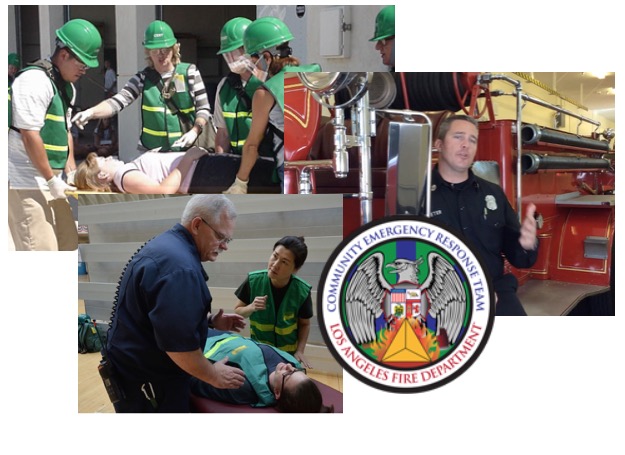Comments
GELFAND’S WORLD - People have been telling me to sign up for CERT training for ten or fifteen years, and I am finally doing it. I plan to report back to you about CERT training over the next couple of months -- what it is, what we are learning, and what its strengths and weaknesses are. And yes, I had to look up what CERT stands for -- Community Emergency Response Team.
Here's the two-line summary of the nearly 40-year history of CERT. Back in the 1980s, there were major earthquakes in Mexico and Japan. The Los Angeles Fire Department studied how each nation had responded to their own disaster, and out of this study they built the CERT program. It's an attempt to prepare us as individuals and neighborhood groups to deal with a disaster.
Here's my first fun fact: At the first class (last week) we were given a homework assignment. It was to find the gas meter and bring back a picture on our cell phone. The idea here is that we will be ready to turn the gas off if we detect a leak in the immediate aftermath of an earthquake. Turning the gas off is simple and easy, as it only requires turning the valve from forward to sideways.
In our first week, we also learned about things we should be stockpiling such as water, food, our prescription medications (for both people and pets), some kind of stove for heating food, and a non-electric can opener.
OK -- now the hard part. CERT training requires a modest commitment. The class is usually 7 sessions (each being a week apart) of 3 hours. If you miss a class, you can find a class in some other location and do it as a makeup.
So how do you sign up? The easiest way is to check out the links here. I'm taking the San Pedro class, but by clicking on the link, you can find classes that will start in the near future on the west side, the valley, Wilmington, and other places in the Los Angeles area.
What is the underlying reason/necessity for the CERT program?
As the CERT instructor explained, in the event of a major earthquake or other natural disaster (such as flooding), the LAFD will be too busy to get to every call. There will be injured and dead, and the first responders will be overwhelmed in the first hours and even days. In such a scenario, we are on our own until enough of a response can be mounted. Think of what happens during and after a major hurricane. People will have to shelter in place, which means you stay where you are and survive on what you have.
Areas with CERT trained people and supply caches are going to do better, in the sense that having food and water is better than not having food and water. Having emergency medical supplies and people who have some first aid training is better than being without.
The other point about CERT training is that you will be better able to take care of yourself and your family in the immediate aftermath of a major quake. Is your home so damaged as to be unsafe, and do you need to evacuate? If you need to evacuate, do you have supplies in a go-bag along with copies of important documents and cash?
One note of criticism -- not aimed at the LAFD, but at the federal agency FEMA: The online FEMA websites should lead us immediately and easily to training programs. Such is not the case. If FEMA intends that people find and sign up for training, they should redo their website presence so that people can understand.
Addendum: The Los Angeles City Council
We continue with a City Council inhabited by returning representatives who voted almost 100% for development deals, even when they were bad for the city as a whole. But now, in a perfect demonstration of the term "holier than thou," they are attempting to deprive the residents of Kevin de Leon's district of the use of city funds because they feel the need to act offended towards de Leon. I don't remember such dramatic, spontaneous demonstrations against the City Council members who were indicted for felonies. There seems to be a bit of a double standard.
Meanwhile, there are several brand-new council representatives who ought to recognize that the final decision on whether de Leon stays or goes is up to the voters of his district. Perhaps the newcomers could recognize the principle of free elections, which includes that well known principle of one person one vote. The citizens of Kevin de Leon's district have the right to sign or not sign the recall petition and to vote Yes or to vote No in the recall election. No other voters have any say in this question, and that includes the 13 other City Council representatives.
And none of this has anything to do with whether we like or dislike Kevin de Leon or approve of anything he ever said. It has everything to do with free elections.
(Bob Gelfand writes on science, culture, and politics for CityWatch. He can be reached at [email protected].)





